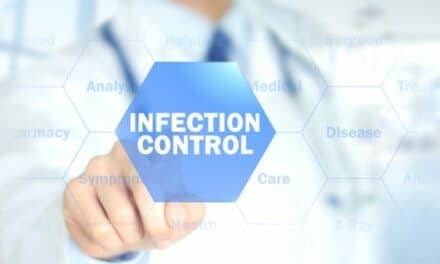In March 2020, Mass General Brigham implemented a new policy: Everyone working at the hospitals would be required to wear a surgical mask. At the time, the concept of universal masking was new and its potential effectiveness unclear. But now, a new study led by investigators from Brigham and Women’s Hospital and published in JAMA makes it clear: After universal masking was implemented at Mass General Brigham, the rate of COVID-19 infection among healthcare workers dropped significantly.
“These results support universal masking as part of a multipronged, infection-reduction strategy in healthcare settings,” says corresponding author Deepak L. Bhatt, MD, MPH, FACC, executive director of interventional programs at the Brigham. “While we studied healthcare workers, the results also apply to other situations in which social distancing is not possible. For those who have been waiting for data before adopting the practice, this paper makes it clear: Masks work.”
The study assessed infection rates for SARS-CoV-2, the virus that causes COVID-19, among Mass General Brigham healthcare workers before and after a universal masking policy was put in place system-wide. Mass General Brigham includes 12 hospitals, including Brigham and Women’s Hospital and Massachusetts General Hospital, and 78,000 employees in Massachusetts. Using electronic medical records, Bhatt and colleagues examined data from March 1 to April 30, looking at test results for healthcare workers who had symptoms of COVID-19 (throughout the study period, anyone with symptoms of COVID-19 could be tested for infection). Of 9,850 healthcare workers tested over the study period, 1,271 (13%) had positive results for SARS-CoV-2.
The team compared rates during the pre-intervention period of March 1 to March 24 to the intervention period of April 11 to April 30 (the team allowed for a transition period from March 25 to April 11 to account for a lag in symptoms). Before the masking policy was implemented, the SARS-CoV-2 positivity rate increased exponentially from 0% to 21%, with cases doubling every 3.6 days. After the policy was implemented, the positivity rate decreased linearly from 15% to 11%. Case numbers continued to increase in Massachusetts throughout the study period.
In their paper, the authors outline other interventions in Massachusetts and at Mass General Brigham during the study period that may have confounded their results. They also note that during a pandemic it is likely not feasible to conduct a randomized trial to test whether universal masking alone accounts for the dramatic reversal in the SARS-CoV-2 positive rate.
“This is the most direct COVID-19 research data to this point that is based on testing of healthcare workers pre- and post-implementation of universal masking policies,” says Dean Hashimoto, MD, the chief medical officer for occupational health services at Mass General Brigham. “When our Infection Control leaders announced a universal masking policy early in the pandemic it was a bold move, especially at a time when, like all health systems, we were facing PPE shortages. But the results of this study demonstrate that requiring masks for all hospital staff regardless of role in the organization was critical to protecting our employees.”





